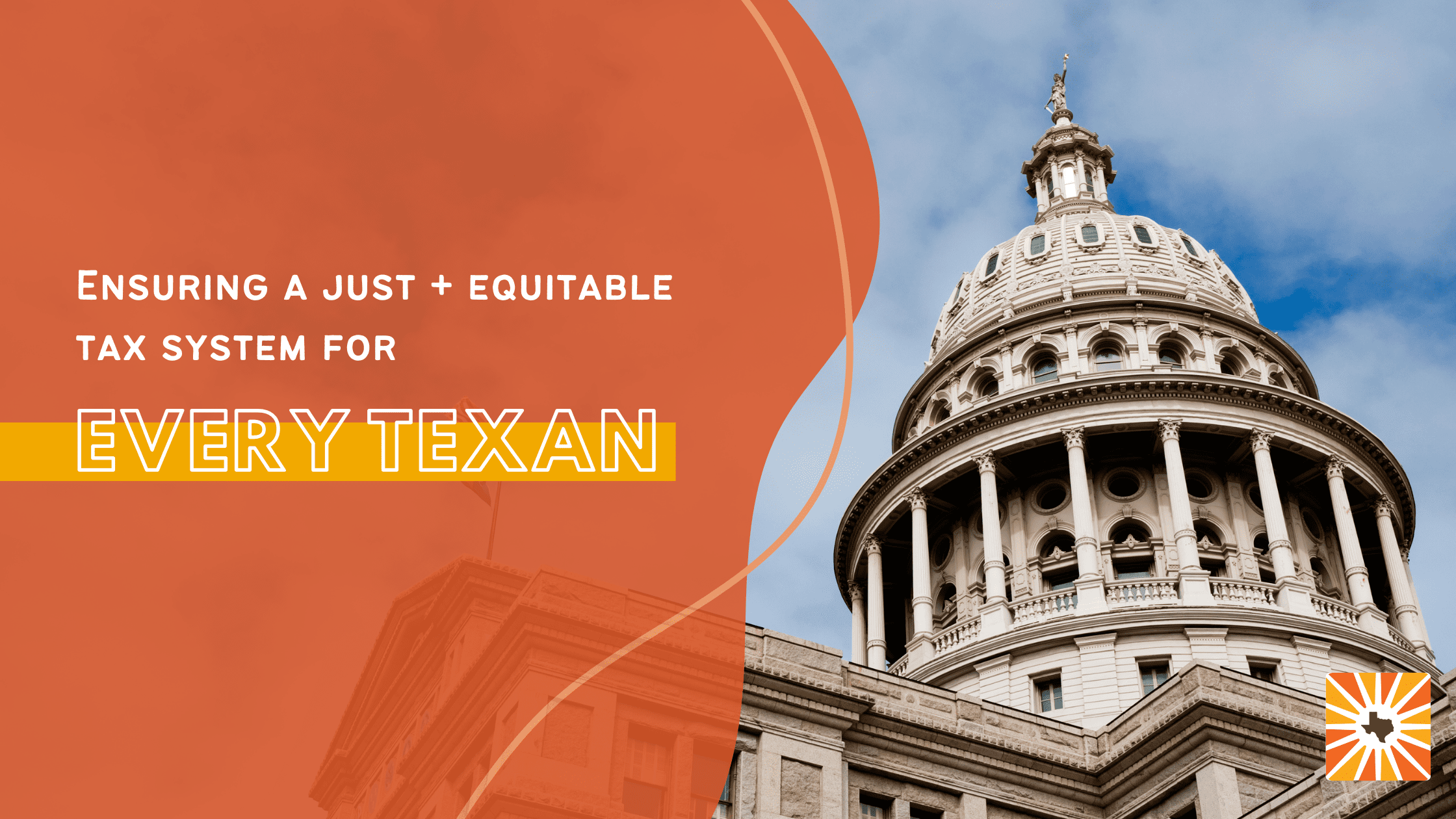Every Texan is an independent public policy organization that uses data and analysis to advocate for solutions that enable Texans of all backgrounds to reach their full potential.
Every Texan opposed the property tax rate cuts enacted by the 88th Legislature, and we will continue to oppose any additional property tax cuts that disproportionately benefit wealthy property owners and harm the state’s ability to fund public education.
Buying down property tax rates again would be a shortsighted use of the state’s temporary positive cash balance. Instead, the Legislature should invest that money in the future of Texas. All Texans would benefit from making smart, forward-looking investments in schools, teachers, health care, state worker pay, infrastructure, the grid, and other programs and services that lead to economic growth and stability.
38% of Texas households are renters, yet the primary beneficiaries of residential property tax rate cuts are wealthy homeowners. Texans of color do not benefit from property tax rate cuts as much as their white neighbors. The bulk of many households’ wealth comes from home equity. While home equity makes up a larger part of wealth for Black and Brown families, a 30-point gap exists between the percentages of white and Black homeowners. The homes owned by Texans of color also tend to be of less value than those owned by white homeowners.
However, increasing the homestead exemption counteracted some of the inequities created by the property tax rate compression, as well as the inherent regressivity of property taxes. The $100,000 homestead exemption increased the number of homes below the exemption threshold (and thus paying zero in school M&O property taxes) from 367,000 to 1.3 million. Of those 1.3 million homes, nearly half (49%) are owned by Hispanic Texans and 10% are owned by Black Texans.
Put another way, those homes valued at $100,000 or less constitute 33% of Hispanic-owned homes in the state overall and 24% of Black-owned homes.
Analysis by income, race and ethnicity can provide nuance when assessing the equity of tax proposals. For bills impacting state taxes, the Legislative Budget Board can be asked to produce an equity note, which analyzes the incidence of the proposed changes. Required in the House, equity notes can provide valuable detail of a bill’s impact on all Texans. For future tax cut proposals in the Senate, the LBB should be directed to conduct this analysis. This would require the Senate to amend Senate rule 7.09 to allow the Senate to request equity notes for local tax bills (in addition to state tax bills).
The low revenue caps placed on school districts and localities in 2019 seemed to assume inflation would always be low; It’s now obvious that’s not the case. While the rate of inflation year-over-year has dropped to 2.4% as of September, local government entities have felt the past few years of post-COVID inflation just as consumers have – even as they face the end of special COVID funding from the federal government. Cities and counties need flexibility in setting tax rates to continue to pay staff, pay down debt, provide services, and deal with emergencies. Barriers to that flexibility jeopardize services and lead to uncertainty and chronic underfunding of local public budgets. According to the Texas Taxpayers and Research Association, total property tax collections were $6 billion lower in 2021 because of the combination of HB 3 and SB 2.
Furthermore, according to the Center on Budget and Policy Priorities, evidence suggests that voters in lower-income areas don’t approve rate increases as readily as those in more affluent areas, widening the gap among municipalities’ ability to provide services.
Texas has a housing affordability problem; overall, one-third of Texas households are housing-cost-burdened, meaning they spend over 30% of their income on housing. But property tax cuts alone are not the solution, especially considering how renters and Texans of color are left behind. The state should explore other options that help Texans who need it the most. That could include:
- A local option flat-dollar homestead exemption, like the school district exemption, is an equitable way to reduce property taxes across the board.
- A renter’s credit or rebate.
- A property tax circuit breaker policy, used in some form in 30 states, would provide a versatile way to control rent or property taxes depending on Texans’ ability to pay.
- A state EITC, available in 31 states and D.C., is another well-tested policy that would give financial relief to low- and middle-income Texans at minimal cost.
All these options would help reduce housing costs for Texans in more targeted ways. Last session, the Legislature cut property taxes. This session, the Legislature should acknowledge the essential revenue they provide and make more permanent investments in the future of Texas.
